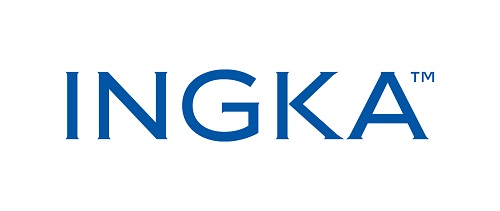A milestone moment: Nozha Boujemaa, Global VP, Digital Ethics and Responsible AI, shares her views on the World Economic Forum's new digital trust report

Digital technologies are now at the heart of nearly every aspect of modern life. And, in lots of ways, that's a great thing. Shopping. Banking. Socialising. Self-care. All are becoming easier, more convenient and more accessible thanks to the rapid advances in technological innovation.
So why, then, is trust in digital technologies in decline? And crucially, how can public and private sector leaders make better, fairer decisions regarding their use?
Those are the questions at the heart of a new insight report released this week by the World Economic Forum (WEF) entitled Earning Digital Trust: Decision-Making for Trustworthy Technologies. The report was created in partnership with an alliance of companies including IKEA and features contributions from 60 experts and leaders in the digital trust community. This includes WEF's own Digital Trust initiative steering committee – a committee that I am very proud to be part of.
It's a compelling and important read, confronting many of the key issues that influence trust in digital technologies all over the world. These include security, privacy and reliability, accountability and oversight, and inclusive, ethical and responsible use.
But we know change doesn’t come from words alone; the report is rooted in action. It sets out a clear framework to guide leaders in how they can make more trustworthy decisions and close the digital trust gap all over the world. Built around four key focus areas, the framework also provides various measurable steps that organisations can take to put its recommendations into practice. The four focus areas are:
- Commit to and lead the move towards rebuilding digital trust, developing a clear business case and cost/benefit analysis to gain the backing of key stakeholders;
- Plan and design programmes that align with the framework and address the major issues impacting digital trust;
- Build and integrate digital trust best practices among their people, processes and technologies;
- Monitor and sustain digital trust programmes to ensure they remain effective as expectations, business requirements and technologies evolve.
Personally speaking, I believe this report can and must be a milestone moment in inspiring government and business leaders to improve the trustworthiness of digital technologies on a global scale. After all, their leadership will be vital in driving the positive, lasting action we need.
But I also believe that building a world in which we can trust and rely upon the digital technologies powering daily life isn't just down to our leaders. From companies and policymakers to civil society and individuals, all of us must draw on our own experiences to call out misuse, highlight issues and help come up with solutions.
For IKEA, this means:
- Setting business-wide goals around human-centric data and algorithmic trustworthiness, ensuring we collect and use data in a way that is transparent towards customers;
- Building these capabilities into the foundations of the Ingka Group data platform;
- Constructing a POC for customer service support with data observability and traceability, with the aim of mastering our responsible use of customer data and making business operations more efficient;
- Working in collaboration with other businesses and organisations, such as the WEF Steering Committee, to advance understanding of, and action around, responsible use of technology.
Trust is at the heart of everything we do. Whether it’s in our products or trust in how we handle your data. Trust must be earned, and we see it as a collective effort. We are a proud partner of the World Economic Forum’s Digital Trust Initiative, and we look forward to keep contributing on creating a shared vision for digital trust between citizens, government, and organizations.
As Daniel Dobrygowski, Head of Governance and Trust at WEF and one of my colleagues on the Digital Trust initiative steering committee, says: “The most important decision we can make in the 21st century is whether we will work together to build trust or watch innovation fail."
Digital technologies have the potential to deliver so many incredible benefits. We now have to make sure those benefits are felt fairly and safely by the many people too.
For further information, journalists and media professionals can contact us at press.office@ingka.com or by calling +46 70 993 6376.
Tags:


